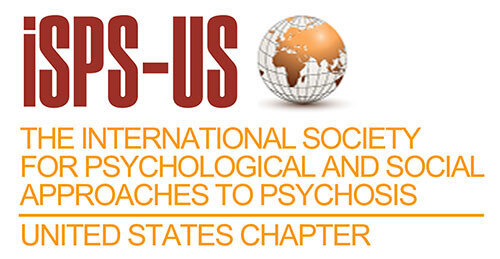
A new study from the Federal Reserve Bank of New York is raising difficult but necessary questions about a practice that affects hundreds of thousands of lives each year: involuntary psychiatric hospitalization.
The study, titled “A Danger to Self and Others: Health and Criminal Consequences of Involuntary Hospitalization,” uses data from Allegheny County, Pennsylvania, to examine whether involuntary hospitalization actually achieves its legal goal, preventing harm to self or others. Read a plain language summary.
The answer, according to authors Natalia Emanuel, Pim Welle, and Valentin Bolotnyy, is troubling. For a significant group of people, those whose hospitalization depends on a "judgment call," being hospitalized against their will appears to increase a range of disastrous outcomes, including the risk of suicide or overdose, as well as the chance of being charged with a violent crime.
“We find that in Allegheny County involuntary hospitalization does not appear to serve its statutory purpose for patients who would be hospitalized by some physicians but not by others,” the authors explain.
“Specifically, for these judgment call patients, involuntary hospitalization increases the probability of being charged with a violent crime by 2.6 percentage points and increases the probability of death by suicide or overdose by 1.0 percentage points in the three months following an evaluation.”
This equates to a 79% increase in risk of being charged with a violent crime, and almost a doubled risk of dying by suicide or overdose, in the three months following evaluation for hospitalization.
The researchers also found hospitalization often caused destabilization. It led to declines in employment and earnings, and increased use of homeless shelters. It did not lead to better outpatient care or more consistent medication use.
“We find evidence that involuntary hospitalization causes destabilization,” the authors write, “as shown by a decrease in employment and earnings, along with an increase in shelter use among those who had not used a shelter in the prior year.”
Why Might Hospitalization Lead to Harm?
The study explores several possible reasons. Being hospitalized against one’s will, often involving police, forced transport, and medication without consent, can be frightening and disempowering. It can damage trust in healthcare and break support networks. For people who use substances, sudden withdrawal followed by relapse can increase overdose risk. Losing a job or stable housing can lead to further crisis.
“If individuals find involuntary hospitalization unwelcome, it may degrade their trust in the healthcare system... In these cases, an involuntary hospitalization may be neutral or harmful,” the researchers note.
What Does This Mean for Policy and Practice?
This study does not claim that all involuntary hospitalizations cause harm. But it does provide strong evidence that the practice, as it is currently used, may be overapplied, especially in cases where there is any level of clinical uncertainty.
“Our estimates are the policy-relevant measures,” the authors write. “The individuals whose effects we estimate are those who would be affected if slightly more or fewer people were hospitalized through physician discretion.”
This research comes amid a national trend toward expanding coercive mental health interventions. The Federal Government has released an Executive Order calling for more civil commitment to "restore public order." California’s CARE Court program allows judges to mandate treatment plans, including medication and outpatient care, even without the person’s consent. In New York, recent laws and a mayoral directive have widened the criteria for involuntary hospitalization. Oregon has also passed legislation lowering the threshold for civil commitment. These moves often respond to complex issues such as homelessness, substance use, and gaps in the mental health system. But as this study shows, more coercion does not necessarily lead to more safety or better outcomes. Lowering thresholds into the realm of clinical uncertainty, such as through hypothetized future risk, will increase disastrous outcomes for both others (violent crimes) and self (suicide and overdose.)
As policymakers across the country push to expand the power to detain and treat people without their consent, this study offers a sobering reminder that coercion can have serious and lasting harms. It also calls on all of us to keep asking hard questions, on both the outcomes we truly seek for people in crisis and the values we uphold.
A Call for Better Responses to Crisis
At ISPS-US, we call for collaborative and rights-based approaches to mental health care. We know coercion, even when intended as protection, can cause trauma, disrupt recovery, and increase mistrust.
This research strengthens the case for investing in:
- Non-coercive, community-based crisis alternatives
- Better training and support for clinicians on alternative approaches and understandings to mental health, distress, and crises
- Housing, income support, and other social determinants of well-being
- Long-term, relationship-based mental health care, including therapies and peer support
Links:
- Full study: A Danger to Self and Others: Health and Criminal Consequences of Involuntary Hospitalization
- Plain language summary
ISPS-US Webinar on This Research
To explore these findings further, ISPS-US recently hosted a webinar featuring Pim Welle, one of the study’s authors. The webinar offers deeper insight into the research and its implications for mental health care and policy. You can watch it here:

